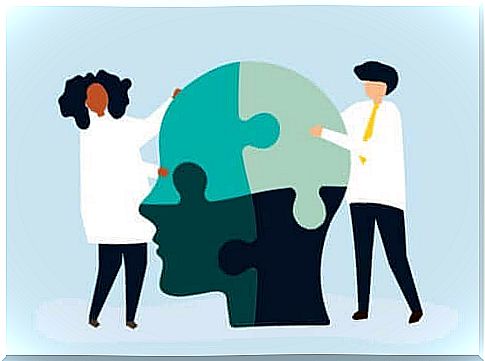Psychological Intervention In Mental Health

According to the World Health Organization, health is a perfect state of physical, mental and social well-being and not merely the absence of disease. In order to achieve or maintain this state, we can use different methods offered by different industries. Psychological intervention is actually one such state of knowledge and its use.
Before we discuss this topic in more detail, it is important to understand what psychological intervention means. According to Alvis (2009), psychological intervention is a process aimed at increasing the developmental capacity of people and their families and communities.
It allows objects to exercise their power and control in an individual and social environment. In this way, it increases people’s well-being and quality of life by educating and providing them with individual aids that enable them to face and solve problems and make changes in their social environment.
What does mental health mean?
As Oramas, Santana, and Vergara (2013) said, mental health consists of learning reality that can then be changed through confrontation, leadership, and resolving unifying conflicts; both internally to the individual and to those around them. When there is a disruption in this learning process or if an individual fails to try to find a solution, one can begin to talk about the disease.
Other writers, such as Riviere, have also said that the purpose of mental health is to be able to maintain dialectical and changing relationships with the world, enabling the resolution of conflicts within an individual as well as those related to his or her social situation. (Quote: Oramas, Santana and Vergara, 2013.)
According to the World Health Organization, mental health is defined as “a state of well-being in which all individuals realize their potential and are able to cope with normal life stress, be able to work productively and fruitfully, and contribute to the community”.

While people’s ability to deal with everyday conflicts and change reality is very important, there are other determinants of mental health:
- Social context. Situations related to poverty, exploitation or belonging to minorities.
- Family backgrounds.
- Comorbidities of other chronic diseases.
Psychological intervention takes place through two interrelated contexts: psychological and social. The individual must begin to consider his or her entire social environment and the only environment with which he or she interacts. When intervention occurs, it is important to remember how important the role of primary care professionals really is. This is the nearest and most accessible service. From then on, experienced professionals will evaluate and move the patient forward.
We need to keep in mind that the coordinated effort of different professions is necessary to achieve the goals. While pharmacological treatment can be significant (always, of course, prescribed by a professional), it is important that we do not lose sight of the importance of psychological intervention.
As stated in the “Good Practices in Intervention for People with Mental Illness” (2016), this intervention must involve social support, monitoring, cooperation, and social rehabilitation. The main goal of this method is to contribute to the autonomy of the individual with a mental illness.
Patients need to receive individual attention. Here are some things we need to keep in mind:
- The needs of the individual.
- Individual family and close circle support.

Psychosocial intervention for people with mental illness includes:
- Activities related to their life situation: supervision, assistance in obtaining a home and so on.
- Daily activities.
- Support for instrumental daily activities.
- Drug dosing control and training.
- Guidance with systematicity and time management.
- Practicing social life and family life.
- Socio-legal advice.
In short, people are now more aware of the importance of mental health than they were a few years ago. However, there is still much to learn and understand about mental illness. As a society, we should gradually become more empathetic, tolerant and aware of this issue.
For this and many other reasons, it is important to encourage people who may need the help of a mental health professional and help them understand how beneficial psychological intervention can be for them.









